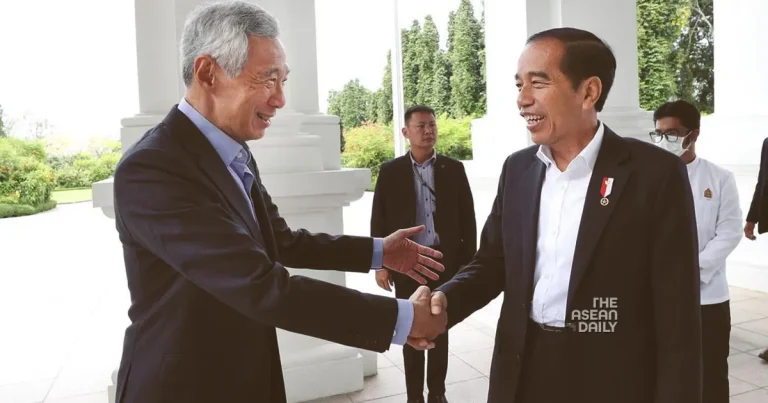4-9-2023 (SINGAPORE) Prime Minister Lee Hsien Loong will lead a delegation from Singapore to attend the 43rd Association of Southeast Asian Nations (ASEAN) summit in Jakarta from Tuesday (Sep 5) to Thursday. The summit will provide an opportunity for ASEAN leaders to discuss the crisis in Myanmar and other regional issues. The meeting takes place against the backdrop of increased tensions in the South China Sea, following China’s release of a new map claiming disputed territories, which has sparked protests from some ASEAN member states.
In a statement issued by Singapore’s Prime Minister’s Office (PMO) on Monday, it was stated that the ASEAN leaders will discuss ways to ensure the continued relevance and centrality of the bloc in the evolving regional architecture. The leaders will exchange views on regional and international developments, including the situation in Myanmar. Additionally, discussions will focus on strengthening ASEAN integration and expanding collaboration in areas such as the digital and green economies.
Accompanying Prime Minister Lee will be Minister for Foreign Affairs Vivian Balakrishnan and officials from the Ministry of Foreign Affairs. In Prime Minister Lee’s absence, Deputy Prime Minister Lawrence Wong will assume the role of Acting Prime Minister.
The summit in Jakarta is the second of two summits hosted by Indonesia as the ASEAN chair. These summits are usually held separately, with one earlier in the year and the other later. As part of the summit, ASEAN leaders will also engage with various external partners, including Australia, Canada, China, India, Japan, the Republic of Korea, and the United States.
Chinese Premier Li Qiang will attend the summit, while the United States will be represented by Vice-President Kamala Harris. US President Joe Biden will not attend the summit but is expected to participate in the Group of 20 (G20) Leaders’ Summit in India from Sep 7 to 10.
The South China Sea dispute will be a significant topic of discussion at the summit. China’s new map, which includes an additional claim to the east of Taiwan, asserts its sovereignty over almost all of the South China Sea and parts of India and Russia. Several countries, including India, Malaysia, Vietnam, Taiwan, Indonesia, and the Philippines, have voiced their objections to the map.
Negotiations on a code of conduct for the South China Sea have faced challenges, including the COVID-19 pandemic, which hindered in-person meetings. When asked about the possibility of international adjudication instead of continuing negotiations, Indonesia’s deputy foreign affairs minister emphasized the importance of dialogue and engagement to reach a conclusion.
The ongoing crisis in Myanmar will also be a key point of discussion. Myanmar has not been invited to the regional meet for the second consecutive year due to the military coup that took place earlier in 2021. ASEAN has stressed the importance of the Five-Point Consensus as the main peace plan for the Myanmar crisis, which includes halting violence and initiating constructive dialogue among the involved parties.
Indonesia’s Foreign Affairs Minister Retno Marsudi highlighted the complexity of the situation and expressed concern over the escalating violence in Myanmar. While discussions and engagements with stakeholders continue, finding a resolution remains challenging.




